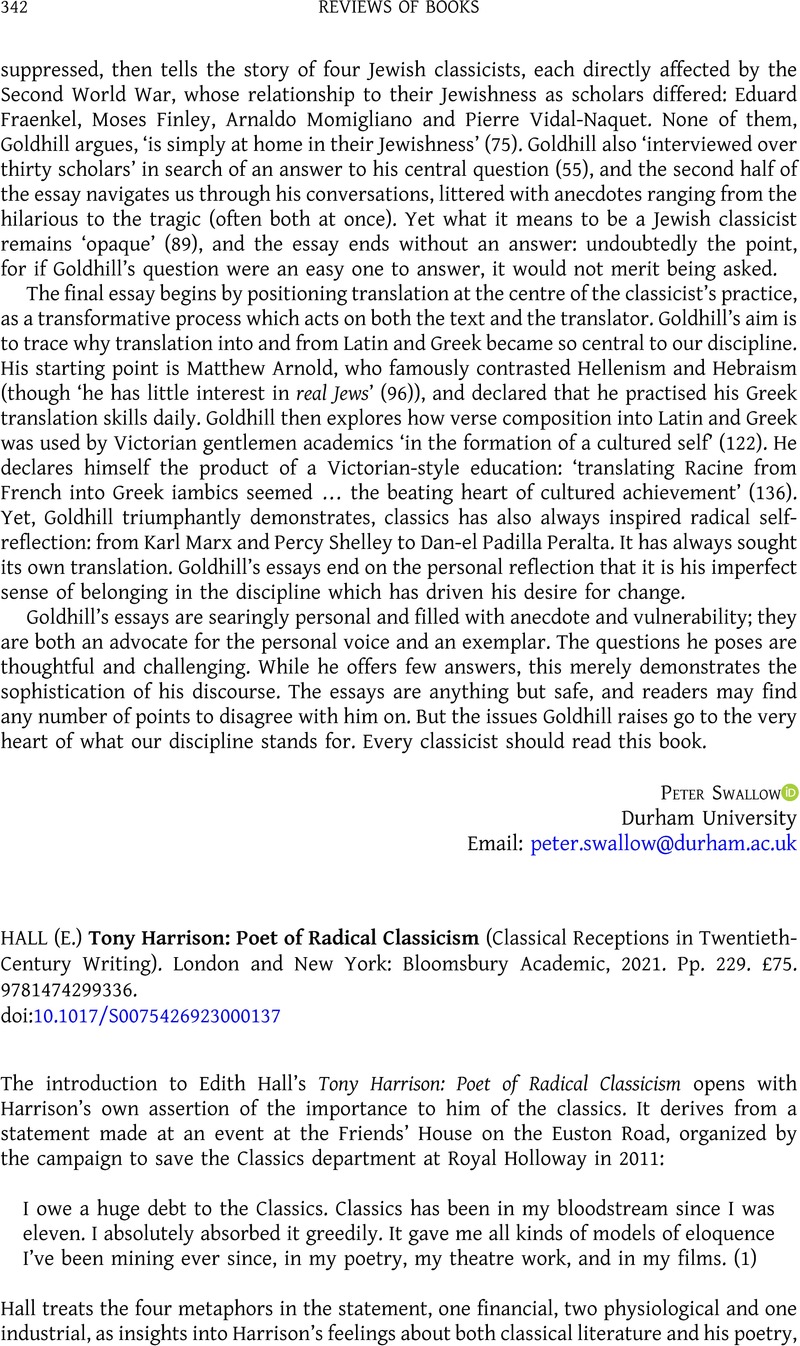No CrossRef data available.
Article contents
(E.) HALL Tony Harrison: Poet of Radical Classicism (Classical Receptions in Twentieth-Century Writing). London and New York: Bloomsbury Academic, 2021. Pp. 229. £75. 9781474299336.
Review products
(E.) HALL Tony Harrison: Poet of Radical Classicism (Classical Receptions in Twentieth-Century Writing). London and New York: Bloomsbury Academic, 2021. Pp. 229. £75. 9781474299336.
Part of:
Reception and history of scholarship
Published online by Cambridge University Press: 14 August 2023
Abstract
An abstract is not available for this content so a preview has been provided. Please use the Get access link above for information on how to access this content.

- Type
- Reviews of Books
- Information
- Copyright
- © The Author(s), 2023. Published by Cambridge University Press on behalf of the Society for the Promotion of Hellenic Studies


